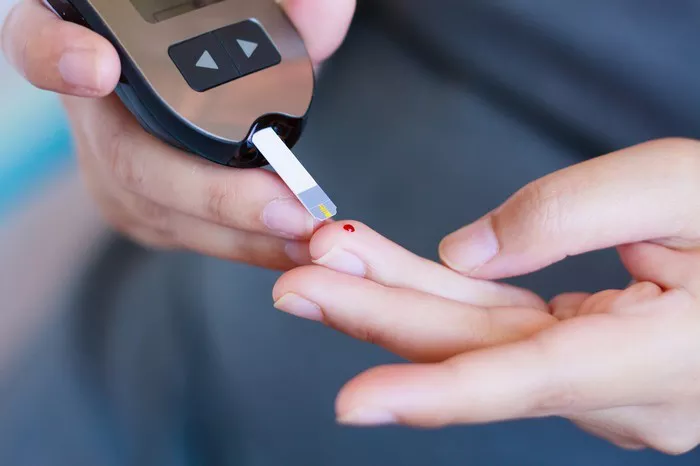Diabetes is a chronic condition that affects how the body regulates blood sugar (glucose). For people with type 2 diabetes, maintaining a healthy weight is often a crucial component of managing the disease. In recent years, certain diabetes medications have gained attention for their effectiveness not only in controlling blood glucose levels but also in promoting weight loss. These medications, originally designed to treat diabetes, have shown promise in helping individuals lose excess weight, which can significantly improve both metabolic health and diabetes management. In this article, we will explore the diabetes medications that are commonly used for weight loss, their mechanisms of action, and their effectiveness.
The Link Between Type 2 Diabetes and Obesity
Obesity and type 2 diabetes are closely linked. Excess body weight, particularly visceral fat (fat around the abdominal organs), contributes to insulin resistance—a hallmark of type 2 diabetes. Insulin resistance occurs when the body’s cells become less responsive to insulin, the hormone responsible for regulating blood sugar levels. As a result, the pancreas produces more insulin to compensate, but over time, this can lead to elevated blood sugar levels and the development of type 2 diabetes.
Losing weight is one of the most effective strategies for improving insulin sensitivity and managing type 2 diabetes. Weight loss can lower blood sugar levels, reduce the need for diabetes medications, and improve overall metabolic health. However, for many individuals with type 2 diabetes, losing weight through diet and exercise alone can be challenging. This is where diabetes medications that also promote weight loss come into play.
Diabetes Medications That Promote Weight Loss
Several classes of diabetes medications have been found to promote weight loss in addition to their glucose-lowering effects. These include GLP-1 receptor agonists, SGLT-2 inhibitors, and metformin. Each of these medications works through different mechanisms to help control blood sugar levels and promote weight loss.
1. GLP-1 Receptor Agonists
GLP-1 receptor agonists are a class of medications that mimic the action of glucagon-like peptide-1 (GLP-1), a hormone that is naturally produced in the gut in response to food intake. GLP-1 helps regulate blood sugar levels by stimulating insulin secretion, inhibiting glucagon secretion, and slowing gastric emptying (the rate at which food leaves the stomach).
In addition to their glucose-lowering effects, GLP-1 receptor agonists have been shown to promote weight loss by reducing appetite and increasing feelings of fullness (satiety). This makes them a popular choice for people with type 2 diabetes who are also trying to lose weight.
Examples of GLP-1 Receptor Agonists
Liraglutide (Saxenda, Victoza): Liraglutide is available under the brand names Saxenda (for weight management) and Victoza (for type 2 diabetes). It has been shown to lead to significant weight loss in individuals with obesity, including those with type 2 diabetes. Saxenda is specifically approved for chronic weight management in individuals with a body mass index (BMI) of 30 or higher (or 27 or higher with a weight-related condition, such as type 2 diabetes).
Semaglutide (Ozempic, Wegovy): Semaglutide, sold under the brand names Ozempic (for type 2 diabetes) and Wegovy (for weight management), is another GLP-1 receptor agonist that has gained widespread attention for its effectiveness in promoting weight loss. Clinical trials have shown that semaglutide can lead to significant weight loss, with some individuals losing more than 10% of their body weight.
Dulaglutide (Trulicity): Dulaglutide is another GLP-1 receptor agonist that is used to treat type 2 diabetes. While it is not specifically approved for weight loss, many people taking dulaglutide experience modest weight loss as a result of its effects on appetite and satiety.
Mechanism of Action for Weight Loss
GLP-1 receptor agonists promote weight loss through several mechanisms:
Reduced Appetite: GLP-1 receptor agonists activate receptors in the brain that are involved in regulating appetite, leading to reduced hunger and increased feelings of fullness.
Delayed Gastric Emptying: By slowing the rate at which food leaves the stomach, GLP-1 receptor agonists prolong the sensation of fullness after eating, which can help reduce overall calorie intake.
Improved Insulin Sensitivity: By enhancing insulin secretion and reducing glucagon levels, GLP-1 receptor agonists improve blood sugar control, which can indirectly contribute to weight loss by reducing the need for insulin (which can promote fat storage).
2. SGLT-2 Inhibitors
Sodium-glucose cotransporter-2 (SGLT-2) inhibitors are another class of diabetes medications that have been shown to promote weight loss. These medications work by inhibiting the reabsorption of glucose in the kidneys, leading to the excretion of excess glucose in the urine. This process not only helps lower blood sugar levels but also results in the loss of calories, which can contribute to weight loss.
Examples of SGLT-2 Inhibitors
Canagliflozin (Invokana): Canagliflozin is an SGLT-2 inhibitor that is used to treat type 2 diabetes. In addition to improving blood sugar control, it has been shown to promote weight loss by reducing the number of calories retained from glucose.
Dapagliflozin (Farxiga): Dapagliflozin is another SGLT-2 inhibitor that has been associated with weight loss. It is often prescribed for people with type 2 diabetes who are also overweight or obese.
Empagliflozin (Jardiance): Empagliflozin is an SGLT-2 inhibitor that has been shown to not only lower blood sugar levels but also promote weight loss and reduce the risk of cardiovascular events in people with type 2 diabetes.
Mechanism of Action for Weight Loss
SGLT-2 inhibitors promote weight loss through the following mechanisms:
Caloric Loss: By blocking the reabsorption of glucose in the kidneys, SGLT-2 inhibitors cause excess glucose to be excreted in the urine. Each gram of glucose excreted in the urine corresponds to a loss of approximately four calories. Over time, this caloric loss can contribute to weight reduction.
Reduced Fat Storage: By lowering blood sugar levels and reducing insulin production, SGLT-2 inhibitors may decrease the body’s tendency to store fat, particularly visceral fat.
3. Metformin
Metformin is one of the most commonly prescribed medications for type 2 diabetes. While it is not specifically approved for weight loss, many people taking metformin experience modest weight loss as a result of its effects on insulin sensitivity and glucose metabolism.
Metformin works by reducing the amount of glucose produced by the liver and improving the body’s response to insulin. This helps lower blood sugar levels and can also lead to a reduction in appetite, which may contribute to weight loss.
Mechanism of Action for Weight Loss
Metformin promotes weight loss through the following mechanisms:
Improved Insulin Sensitivity: By improving the body’s response to insulin, metformin helps reduce the amount of insulin required to regulate blood sugar levels. Lower insulin levels can decrease the body’s tendency to store fat.
Reduced Appetite: Some studies suggest that metformin may have appetite-suppressing effects, which can contribute to reduced calorie intake and weight loss.
Effectiveness of Diabetes Medications for Weight Loss
The effectiveness of diabetes medications for weight loss can vary depending on the specific medication and the individual. In general, GLP-1 receptor agonists tend to be the most effective at promoting weight loss, with some individuals losing up to 10% or more of their body weight. SGLT-2 inhibitors and metformin are also associated with modest weight loss, typically in the range of 2-4% of body weight.
Clinical Trials and Research
GLP-1 Receptor Agonists: Clinical trials have shown that GLP-1 receptor agonists such as liraglutide and semaglutide can lead to significant weight loss. For example, in the STEP trial, participants taking semaglutide lost an average of 15% of their body weight over 68 weeks, compared to 2.4% in the placebo group.
SGLT-2 Inhibitors: Studies on SGLT-2 inhibitors have demonstrated weight loss ranging from 2-4% of body weight. For example, in a clinical trial involving canagliflozin, participants lost an average of 3.2% of their body weight after 26 weeks of treatment.
Metformin: While metformin is not as effective as GLP-1 receptor agonists or SGLT-2 inhibitors for weight loss, it has been shown to result in modest weight loss, particularly in individuals with obesity or insulin resistance.
Who Should Consider Diabetes Medications for Weight Loss?
Diabetes medications that promote weight loss may be a good option for individuals with type 2 diabetes who are overweight or obese and have difficulty losing weight through lifestyle changes alone. These medications can help improve both blood sugar control and weight management, which can reduce the risk of diabetes-related complications such as cardiovascular disease, kidney disease, and neuropathy.
However, it is important to note that not all diabetes medications are suitable for everyone. The decision to use a diabetes medication for weight loss should be made in consultation with a healthcare provider, who can assess the individual’s medical history, current health status, and weight loss goals.
Considerations for Choosing a Diabetes Medication
When choosing a diabetes medication for weight loss, several factors should be taken into account:
Efficacy: GLP-1 receptor agonists tend to be the most effective at promoting weight loss, followed by SGLT-2 inhibitors and metformin. However, the degree of weight loss can vary depending on the individual.
Side Effects: Each class of medication has its own potential side effects. GLP-1 receptor agonists can cause nausea and vomiting, particularly at the beginning of treatment. SGLT-2 inhibitors may increase the risk of urinary tract infections and genital infections. Metformin is generally well-tolerated but can cause gastrointestinal side effects such as diarrhea and bloating.
Cost: Some diabetes medications, particularly newer GLP-1 receptor agonists, can be expensive and may not be covered by all insurance plans. It is important to consider the cost of medication when making a decision.
Individual Health Status: Individuals with certain health conditions, such as kidney disease or cardiovascular disease, may need to avoid certain medications. For example, SGLT-2 inhibitors should be used with caution in individuals with impaired kidney function.
See also: What Are the 5 Major Complications of Diabetes?
Conclusion
For individuals with type 2 diabetes who are struggling with weight management, certain diabetes medications can provide a dual benefit by improving blood sugar control and promoting weight loss. GLP-1 receptor agonists, SGLT-2 inhibitors, and metformin are among the medications that have been shown to help individuals lose weight, with GLP-1 receptor agonists being the most effective. However, the choice of medication should be made in consultation with a healthcare provider, taking into account the individual’s health status, weight loss goals, and potential side effects. By incorporating these medications into a comprehensive diabetes management plan, individuals with type 2 diabetes can improve their overall health and reduce the risk of complications.
Related topics:
What Blood Test for Type 2 Diabetes?



























